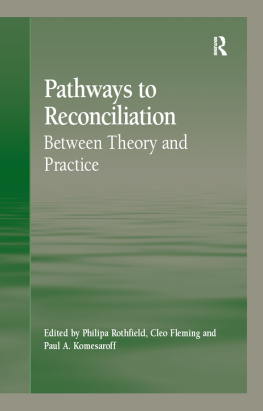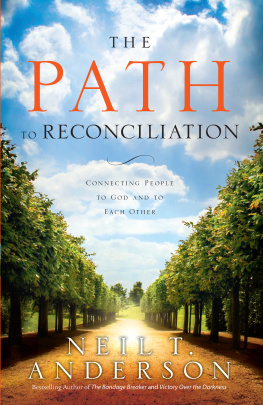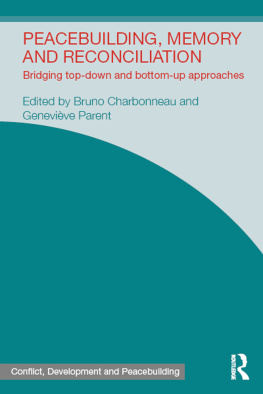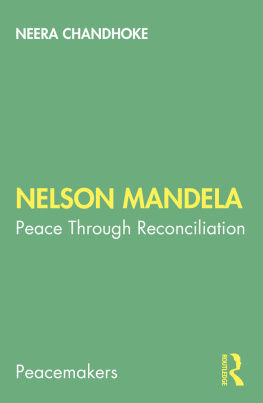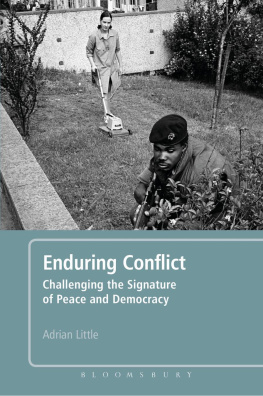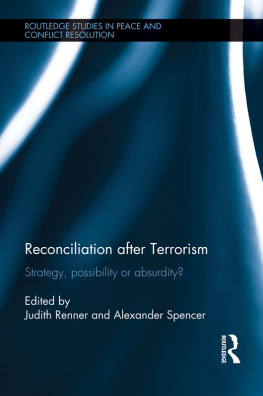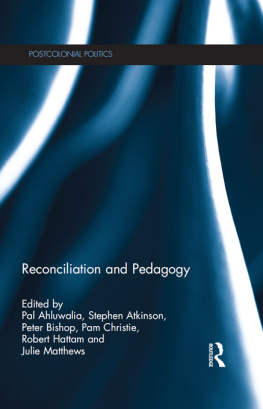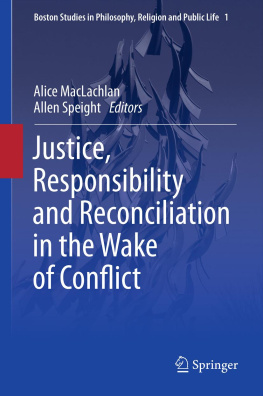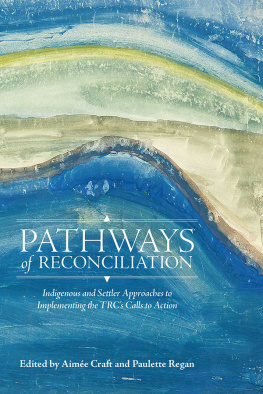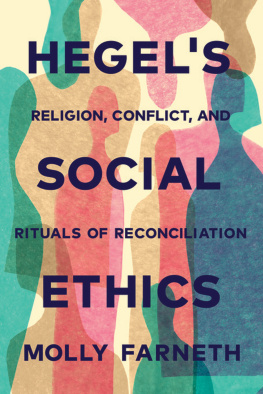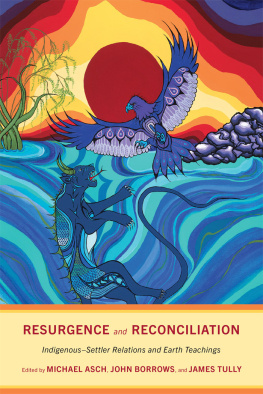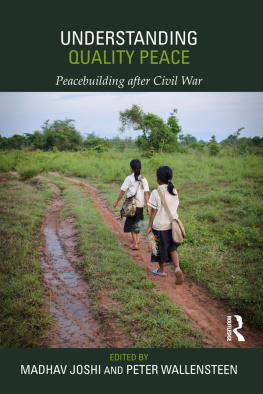PATHWAYS TO RECONCILIATION
For Tilly, Nina, Frida and Ilya
Pathways to Reconciliation
Between Theory and Practice
Edited by
PHILIPA ROTHFIELD
La Trobe University, Australia
CLEO FLEMING
Monash University, Australia
PAUL A. KOMESAROFF
Monash University, Australia
First published 2008 by Ashgate Publishing
Published 2016 by Routledge
2 Park Square, Milton Park, Abingdon, Oxon OX14 4RN
711 Third Avenue, New York, NY 10017, USA
Routledge is an imprint of the Taylor & Francis Group, an informa business
Philipa Rothfield, Cleo Fleming and Paul A. Komesaroff 2008
All rights reserved. No part of this publication may be reproduced, stored in a retrieval system or transmitted in any form or by any means, electronic, mechanical, photocopying, recording or otherwise without the prior permission of the publisher.
Philipa Rothfield, Cleo Fleming and Paul A. Komesaroff have asserted their moral right under the Copyright, Designs and Patents Act, 1988, to be identified as the editors of this work.
Notice:
Product or corporate names may be trademarks or registered trademarks, and are used only for identification and explanation without intent to infringe.
British Library Cataloguing in Publication Data
Pathways to reconciliation : between theory and practice
1. Reconciliation - Political aspects
I. Rothfield, Philipa II. Fleming, Cleo III. Komesaroff, Paul A.
303.69
Pathways to reconciliation : between theory and practice
1. Reconciliation - Political aspects
I. Rothfield, Philipa II. Fleming, Cleo III. Komesaroff, Paul A.
303.69
Library of Congress Cataloging-in-Publication Data
Pathways to reconciliation : between theory and practice / [edited] by Philipa Rothfield, Cleo Fleming and Paul A. Komesaroff.
p. cm.
Includes index.
ISBN 978-0-7546-7513-6
1. Conflict management--Cross-cultural studies. 2. Culture conflict--Cross-cultural studies. 3. Reconciliation--Cross-cultural studies. I. Rothfield, Philipa. II. Fleming, Cleo. III. Kome-saroff, Paul A.
HM1126.P383 2008
303.69--dc22
2008028144
ISBN: 978 0 7546 7513 6 (hbk)
Contents
Notes on Editors and Contributors
Paul A. Komesaroff
Philipa Rothfield
David Pettigrew
Alphonso Lingis
Modjtaba Sadria
Geraldine Smyth O.P.
Damian Grenfell
Kay Schaffer
Julian Jonker
Paul James
Helena Cobban
Patrick Burgess
Vince Gamberale
Daphna Golan-Agnon
Andrew Gunstone
Derick Wilson
Patrick Burgess is an Australian barrister specializing in international human rights and criminal law. He is currently Asia Director for the International Centre for Transitional Justice. From 1999 to 2005 he worked in East Timor for the UNTAET and UNMISET missions and was Principal Legal Counsel for the East Timor Commission for Reception, Truth and Reconciliation (CAVR).
Helena Cobban is a writer and internationally syndicated columnist on global affairs. Since 1990 she written a column for The Christian Science Monitor and she contributes a regular column to the London-based Arabic-language daily, Al-Hayat. She is a Contributing Editor of Boston Review. Ms. Cobban has published five books, most recently, Re-engage! America and the World After Bush (2008).
Cleo Fleming has a BA (Politics) and a Graduate Diploma of Arts (International Relations) from Monash University, Melbourne and, a MA (International Development) from RMIT University, Melbourne. She is a founding member of the Global Reconciliation Network and has coordinated two of the networks four conferences (London 2003 and Sarajevo 2005).
Vince Gamberale is the Country Director for CHF International in Serbia, and the former Country Director for Bosnia and Herzegovina. Mr Gamberale has experience in implementing emergency assistance, post-conflict rehabilitation and transitional development programs gained in: Iraq, Bosnia and Herzegovina, Azerbaijan, Kosovo, FYR Macedonia and Albania.
Daphna Golan-Agnon is a sociologist who teaches human rights at the Hebrew University of Jerusalem and a Research Associate at the Harry S. Truman Institute. She is the author of Separation, Normalization and Occupation: The Dilemmas of a Joint Venture by Palestinian and Israeli Women (1995) and Where Am I in this Story? (2002). Dr Golan-Agnon is co-founder of BTselem: The Israeli Information Centre for Human Rights in the Occupied Territories.
Damian Grenfell is a Post-doctoral Fellow and Research Project Manager with the Globalism Research Centre, RMIT University. An interest in social movements and resistance politics has provided an impetus for research into forms of nationalist insurrection and post-conflict reconstruction, especially in terms of how we understand the nation-state in a period of intense globalisation. An RMIT-based project titled Sources of Insecurity provides the basis for this research in which Timor LEste is the focus.
Andrew Gunstone is Head of the Centre for Australian Indigenous Studies in the School of Humanities, Communications and Social Sciences at Monash University, Melbourne. His research focus is on the Australian reconciliation process and the history of Indigenous and non-Indigenous political relationships. He is the Foundation Editor of the Journal of Australian Indigenous Issues, and the author of Unfinished Business: The Australian Formal Reconciliation Process (2007).
Jackie Huggins AM is a woman of the Bidjara/Birri-Gubba Juru peoples. She is the former Co-Chair of Reconciliation Australia, a non-government organization dedicated to ending Indigenous disadvantage. She is Deputy Director of the Aboriginal and Torres Strait Islander Studies Unit at the University of Queensland. Historian and published author, she is one of Australias most prominent Indigenous leaders and was a member of the Council for Aboriginal Reconciliation for six years.
Paul James is Director of the Globalism Research Centre, RMIT University. He is an editor of Arena Journal, and sits on the Council of the Institute of Post-colonial Studies. Professor James is the author or editor of nine books including, Nation Formation: Towards a Theory of Abstract Community (1996) (with T. Nairn), Global Matrix: Nationalism, Globalism and State-Terror (2005) and Globalism, Nationalism Tribalism: Bringing Theory Back In (2005).
Julian Jonker lives in Cape Town, South Africa. He teaches legal history and rhetoric at the Department of Private Law, University of Cape Town, and has written about law and memory in post-apartheid Cape Town, intellectual property and indigenous knowledge. Mr Jonker has also exhibited sound art on the subject of memory and identity and has produced community arts projects in Cape Town.
Paul A. Komesaroff is a physician, philosopher and medical researcher in the Faculty of Medicine at Monash University, Melbourne. Professor Komesaroff is the author of more than 250 articles and author or editor of ten books, including Objectivity, Science and Society (1986 and 2008), Troubled Bodies: Critical Perspectives on Post-modernism, Medical Ethics and the Body (1996), Reinterpreting Menopause: Cultural and Philosophical Issues

